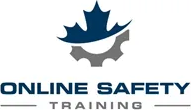Pipeline Construction Safety Training (PCST)

Pipeline Construction Safety Training (PCST) in Canada is essential to ensure the safety of workers and protect the environment during the construction and maintenance of pipelines. The specific requirements and regulations for pipeline safety training may vary depending on the province or territory in Canada, but there are some general guidelines and organizations that can help with training and certification. Here are the key steps and information you should consider:
- Regulations and Standards: Start by familiarizing yourself with the relevant federal and provincial/territorial regulations and standards that apply to pipeline construction safety in Canada. These regulations often dictate the specific training and certification requirements for workers involved in pipeline construction.
- Training Providers: Look for training providers that offer courses and programs related to pipeline construction safety. Some reputable organizations that offer training in Canada include:
- Energy Safety Canada: Energy Safety Canada is a non-profit organization that provides various safety training courses and resources specifically for the oil and gas industry, including pipeline construction.
- Construction Safety Association of Ontario (CSAO): CSAO offers a range of safety training programs, including those related to pipeline construction safety.
- Provincial Safety Associations: Many provinces and territories in Canada have their own safety associations that provide training and resources for construction safety. For example, the Alberta Construction Safety Association (ACSA) or the British Columbia Construction Safety Alliance (BCCSA).
- Trade Unions and Industry Associations: Some trade unions and industry associations may also offer pipeline construction safety training to their members.
- Course Content: Ensure that the training courses cover essential topics related to pipeline construction safety. These may include:
- Hazard identification and risk assessment
- Personal protective equipment (PPE)
- Emergency response and evacuation procedures
- Equipment operation and maintenance
- Safe work practices and procedures
- Environmental protection and regulations
- Regulatory compliance
- Certification: Depending on the jurisdiction and the type of work you’ll be involved in, you may need to obtain specific certifications. Certification requirements can vary, so check with the relevant authorities or your employer to determine which certifications are necessary for your role.
- Continuing Education: Stay up-to-date with industry standards and best practices by participating in continuing education and refresher courses. Safety practices and regulations can change, so it’s crucial to stay informed.
- On-the-Job Training: In addition to formal safety training, on-the-job training and mentoring are often essential for new workers to gain practical experience and reinforce safety knowledge.
- Documentation: Keep records of your safety training and certifications. Many employers and regulators require documentation as proof of your training and qualifications.
- Reporting Safety Concerns: If you observe safety hazards or concerns on a pipeline construction site, report them promptly to your supervisor or the appropriate authority. Safety is a shared responsibility.
Always prioritize safety in pipeline construction, and make sure to comply with all relevant regulations and industry best practices. Seek guidance from local authorities, training providers, and your employer to ensure that you receive the appropriate training and certifications for your role in pipeline construction in Canada.
Click here to take the online Pipeline Construction Safety Training (PCST)
